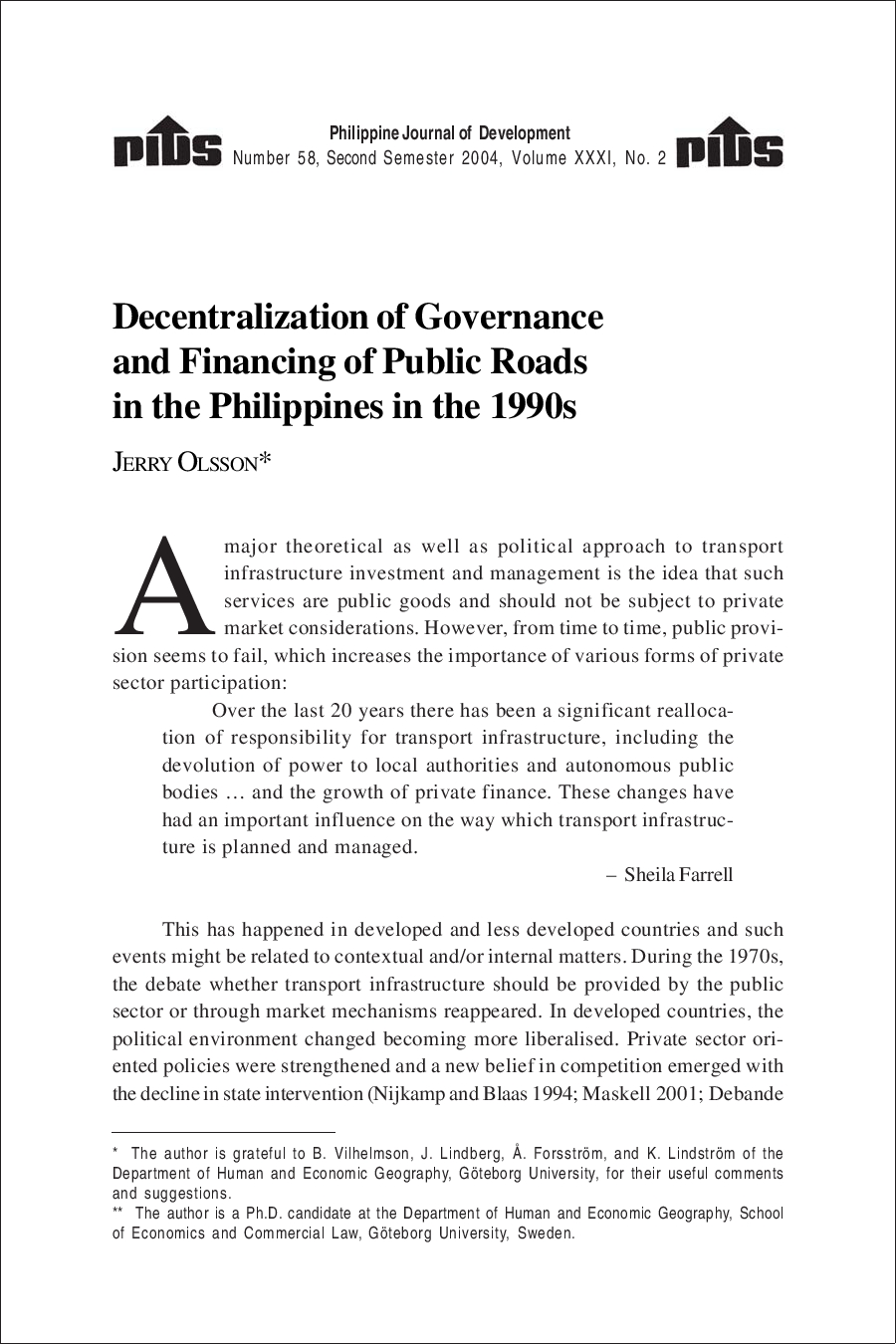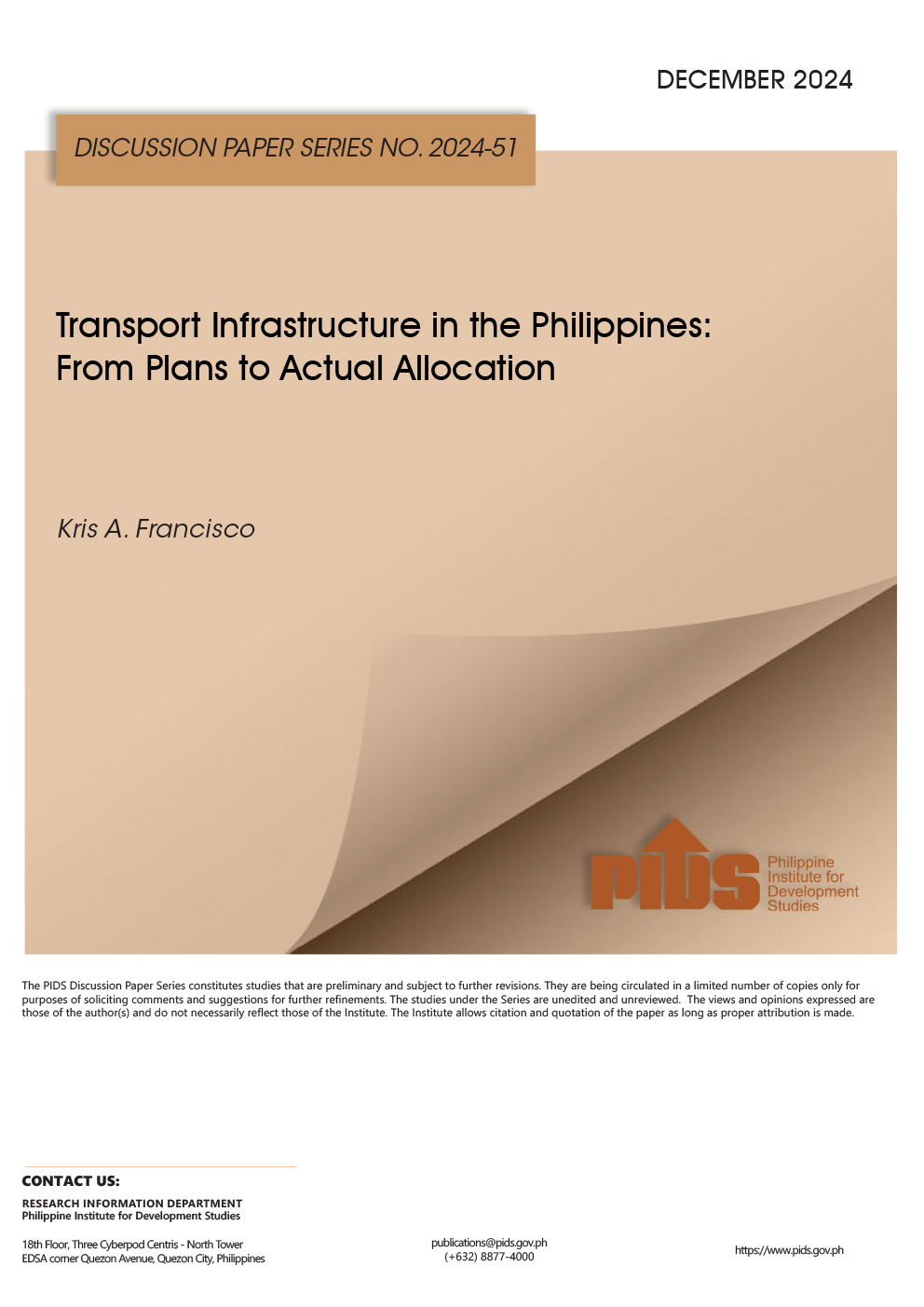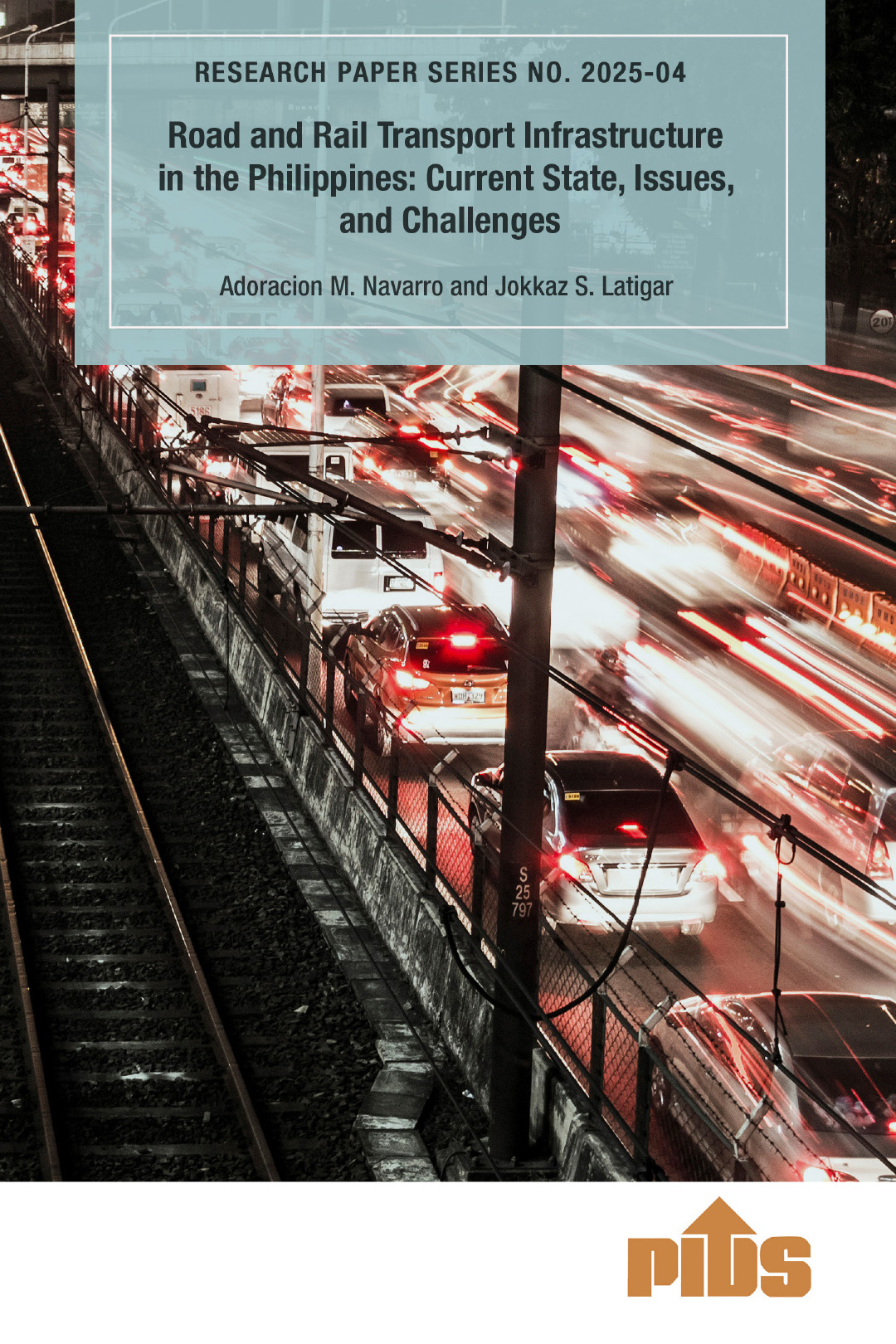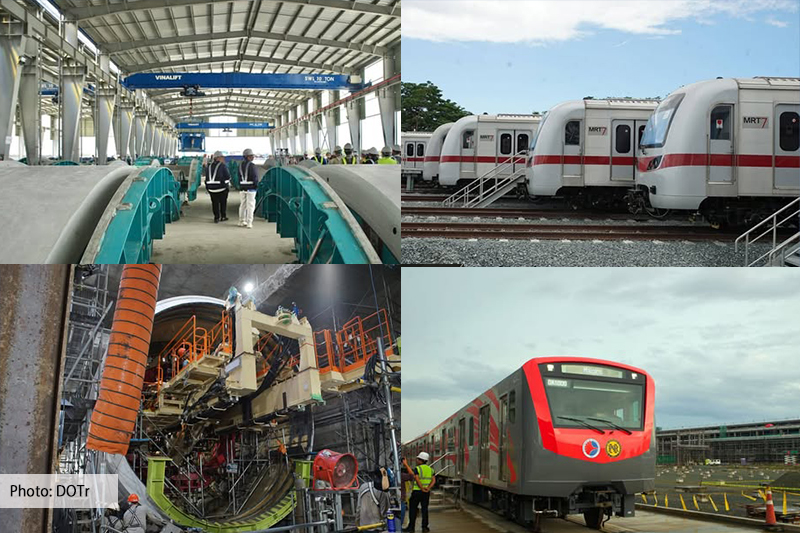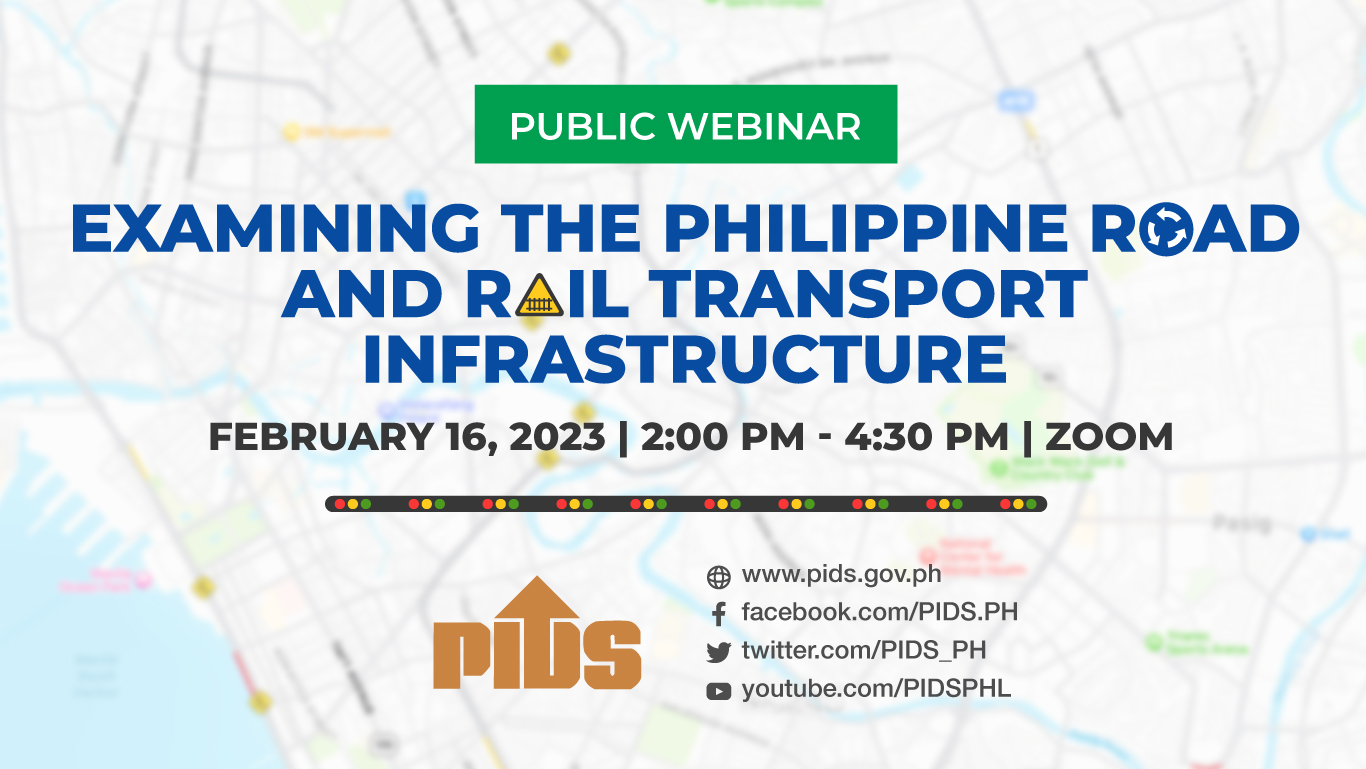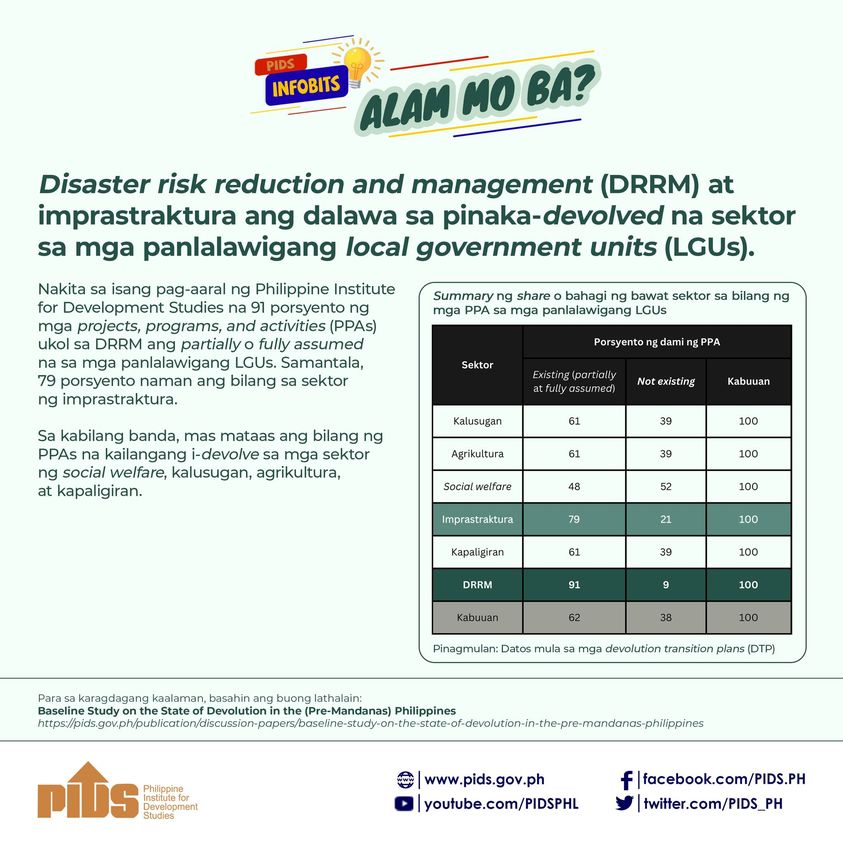A major theoretical as well as political approach to transport infrastructure investment and management is the idea that such services are public goods and should not be subject to private market considerations. However, from time to time, public provision seems to fail, which increases the importance of various forms of private sector participation. Assessing the impact of devolution on the country's road infrastructure, the author underscores the lack of coherence in the design and redistribution of resources and responsibilities, which resulted in a coordination gap between national government agencies and local government units. An important insight is that the private provision of a public good may be feasible, for as long as its consumer-beneficiaries can be made to pay a use price, such that the revenue stream to the private provider is greater than the cost of construction, administration, and upkeep of the public good.

